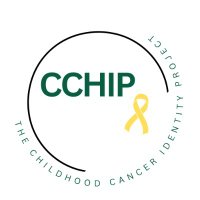
Alex Pizzo
@alexpizzo5
Graduate Student in Clinical Psychology @Concordia. Interests in: Childhood Cancer, Pediatric Psychology, Pain, Sleep, & Mental Health. He/Him.
ID: 1453459933073186816
27-10-2021 20:33:54
12 Tweet
77 Followers
84 Following

Calling all Canadian childhood cancer patients/survivors that are 17 years old or younger, and parents/caregivers of children with cancer!🎗️ Turn on our post notifications and stay tuned for an important announcement in 1 day! For more information email:[email protected]









Did you have childhood cancer? 🎗️🇨🇦🇺🇸 Participate in our research study by completing our online survey! Participation will take ~40-55 mins and you will be entered to win a $50 gift card. 💛 Scan the QR code, email us at [email protected], or use the link in our bio! ✨


Check out our recent work looking at fear of cancer recurrence in long term survivors of childhood cancer published in JAMA Network Open! Findings suggest fear of cancer recurrence is common in this population and should be routinely screened. Dr. Nicole Alberts Concordia University



